Main Content
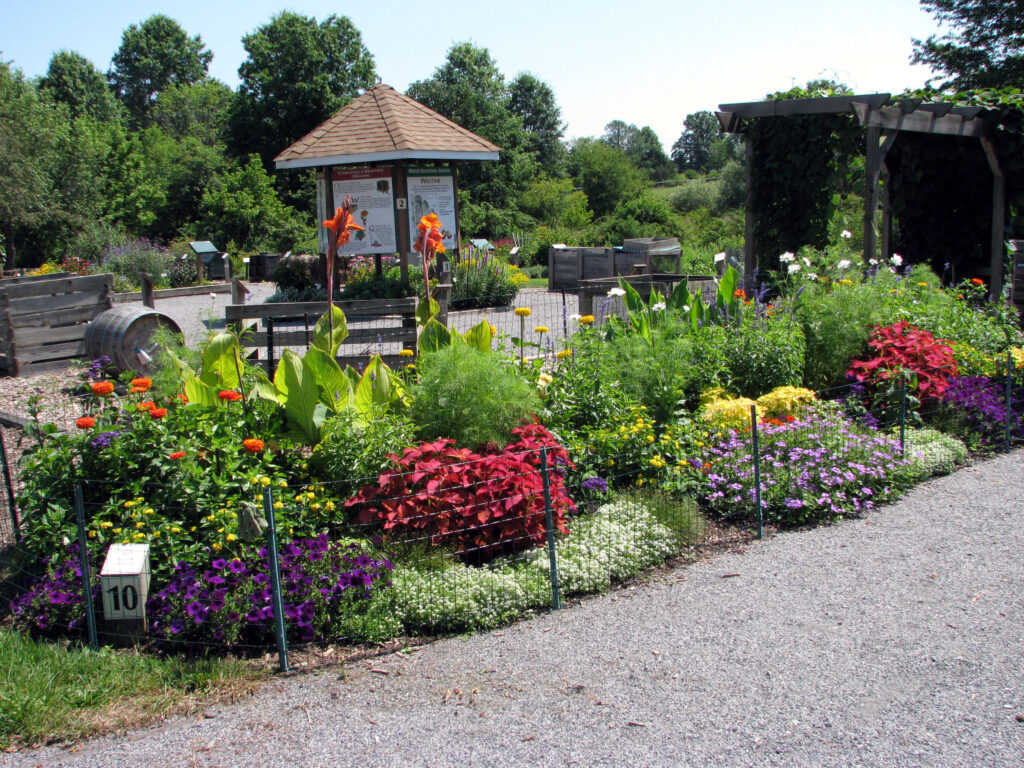
Mercer Educational Gardens (MEG) are located at 431A Federal City Rd, Pennington, NJ adjacent to the Lawrence-Hopewell Trail and in the Equestrian Center district of Mercer Meadows. They are maintained and supported by the Rutgers Master Gardeners with help from the Mercer County Parks Commission.
This award-winning site features a self-guided tour of display gardens listed below, a wetland meadow restored with native grasses and wildflowers, and more than 20 composting methods for home use. It focuses on composting of garden and household refuse and on plant selection and culture for various types of gardens. Public gardening events and programs are held at the site several times a year.
HOURS: Monday-Thursday 7am-7pm, Friday-Sunday 7am-4pm
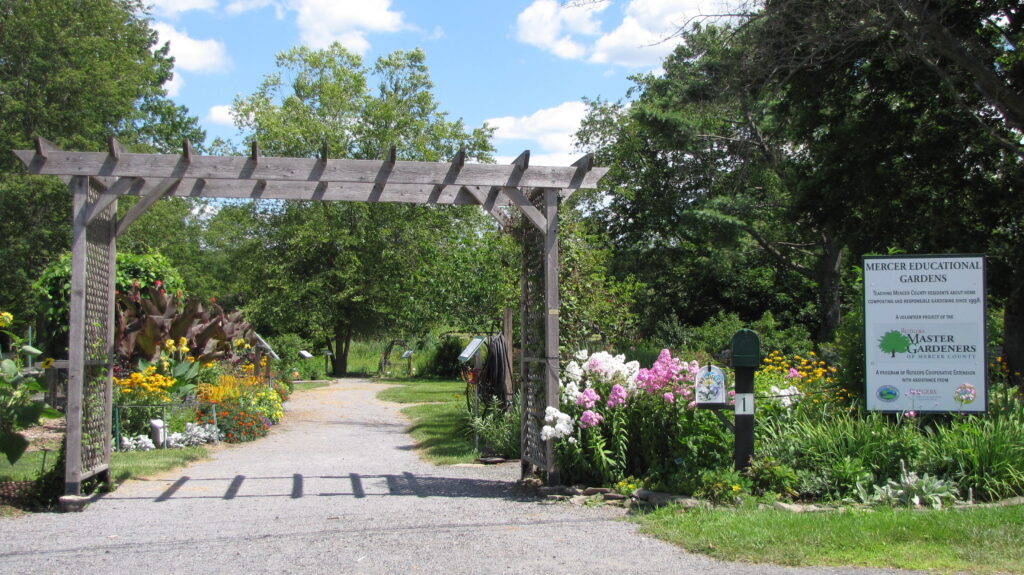
Mercer Educational Gardens – Display Gardens
- Annual Garden – By creating an annual garden there’s a chance to make each year’s planting different and that’s what makes growing annuals so exciting. Explore the design elements of color, texture and shape in combining plants to create a visually appealing garden. See Annuals for Difficult Sites.
- Butterfly Garden – As meadows, hedgerows and open fields with their native plants give way to land development, butterflies (click here for a butterfly identification chart) rely increasingly on our gardens to provide a friendly habitat. They require plants during each stage of their life cycle – egg, caterpillar, chrysalis (or pupa) and butterfly. Click here for some examples of plants that are butterfly magnets. Supporting and maintaining a population of butterflies from spring to early fall requires a garden with plants for all stages of life. Attracting butterflies to your garden is easy to do.
- Cottage Garden – The earliest cottage gardens had a practical purpose, growing herbs, fruits and vegetables for the working class in England. The gardens surrounded the home and were densely planted. Later, flowers were included, considered practical because of the pleasant scent they brought indoors. Over time, a Cottage Garden became a distinct style using informal design and a variety of plants. The dense planting is charming…with or without the cottage.
- Herb Garden – The Medicinal section of the Herb Garden contains traditionally used herbs as well as new outstanding varieties. The center Culinary section has a raised bed with enhanced soil and drainage and offers enticing sights and scents. The section nearest the shed is experimental and includes herbs appropriate for heavy wet clay soil.
- Native Plant Garden – Karen Colihan Native Plant Garden – Think of ecological balance and harmony as you walk around these trees, shrubs and perennials that are native to wetlands of the Eastern Deciduous Forest eco-region. To help protect the plants during the winter, a removable deer fence is in place from November through April. This large and beautiful garden is filled with native species of trees, shrubs and perennials.
- Perennial Garden – What you see before you is an example of a perennial garden. These hardy plants come back each spring, year after year, as opposed to annuals that die with the first killing frost in the fall. If you are interested in learning more about this type of garden, read on for some helpful suggestions on how you too can create a perennial garden. Also, take a walk around the garden to look for any ideas, especially suggestions for plants, which you may take with you.
- Weed ID Garden – Designed to help home gardeners identify the myriad self-sown plants that appear in every garden, this exhibit contains local weeds – perennial species and a rotating seasonal display of annual weed species.
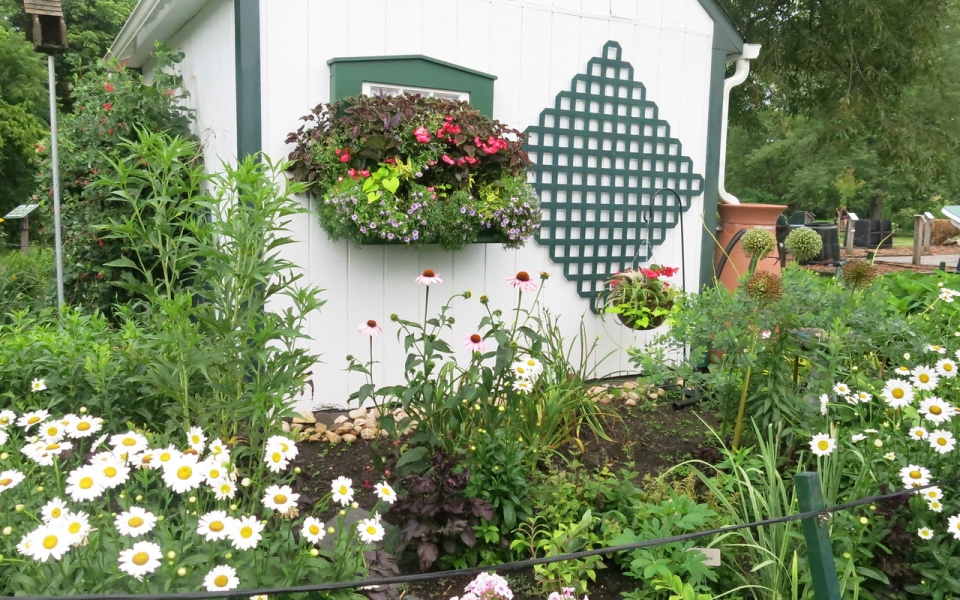
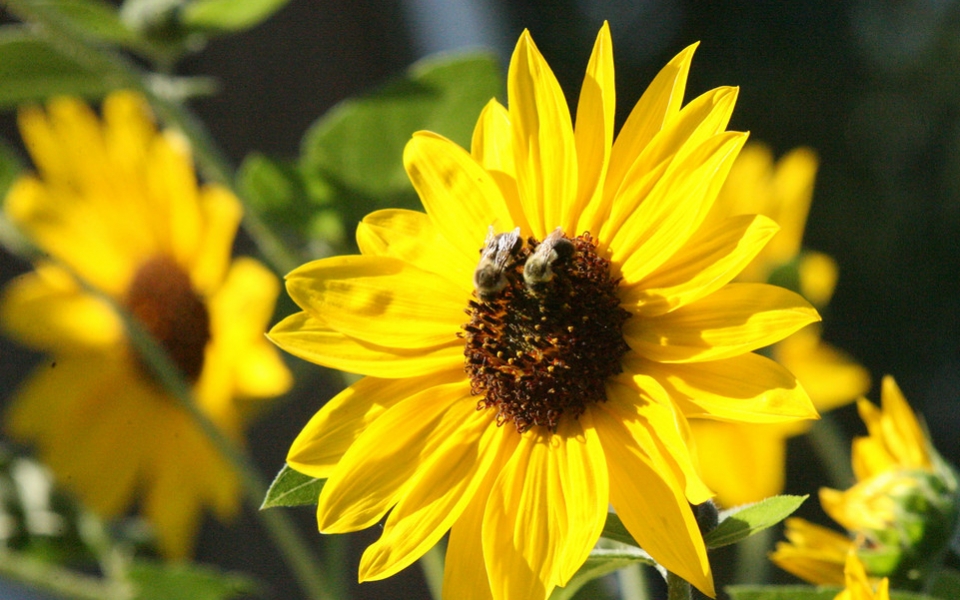
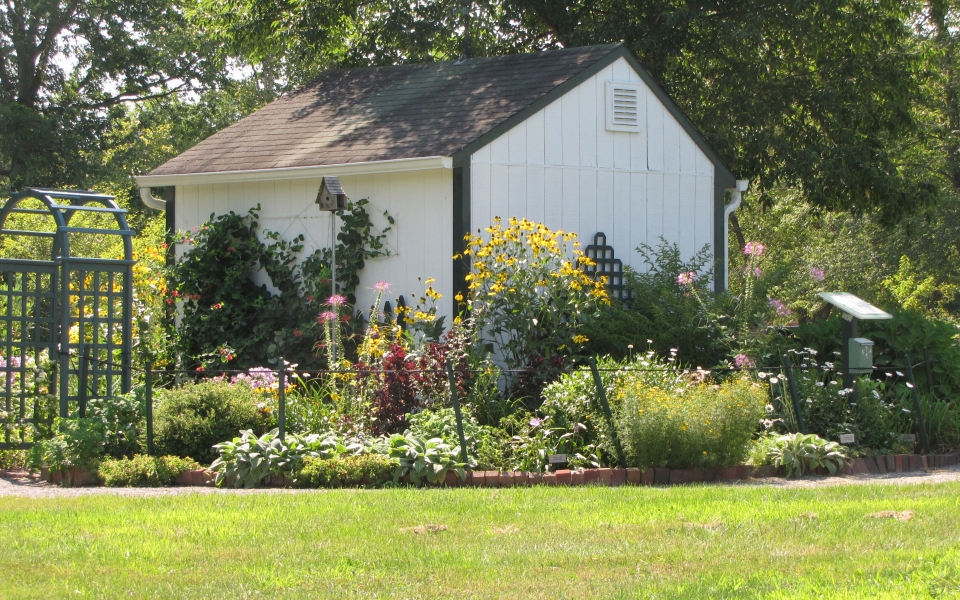
Click here for a PDF of all the plants represented at the Mercer Educational Gardens. We hope that you will visit soon!